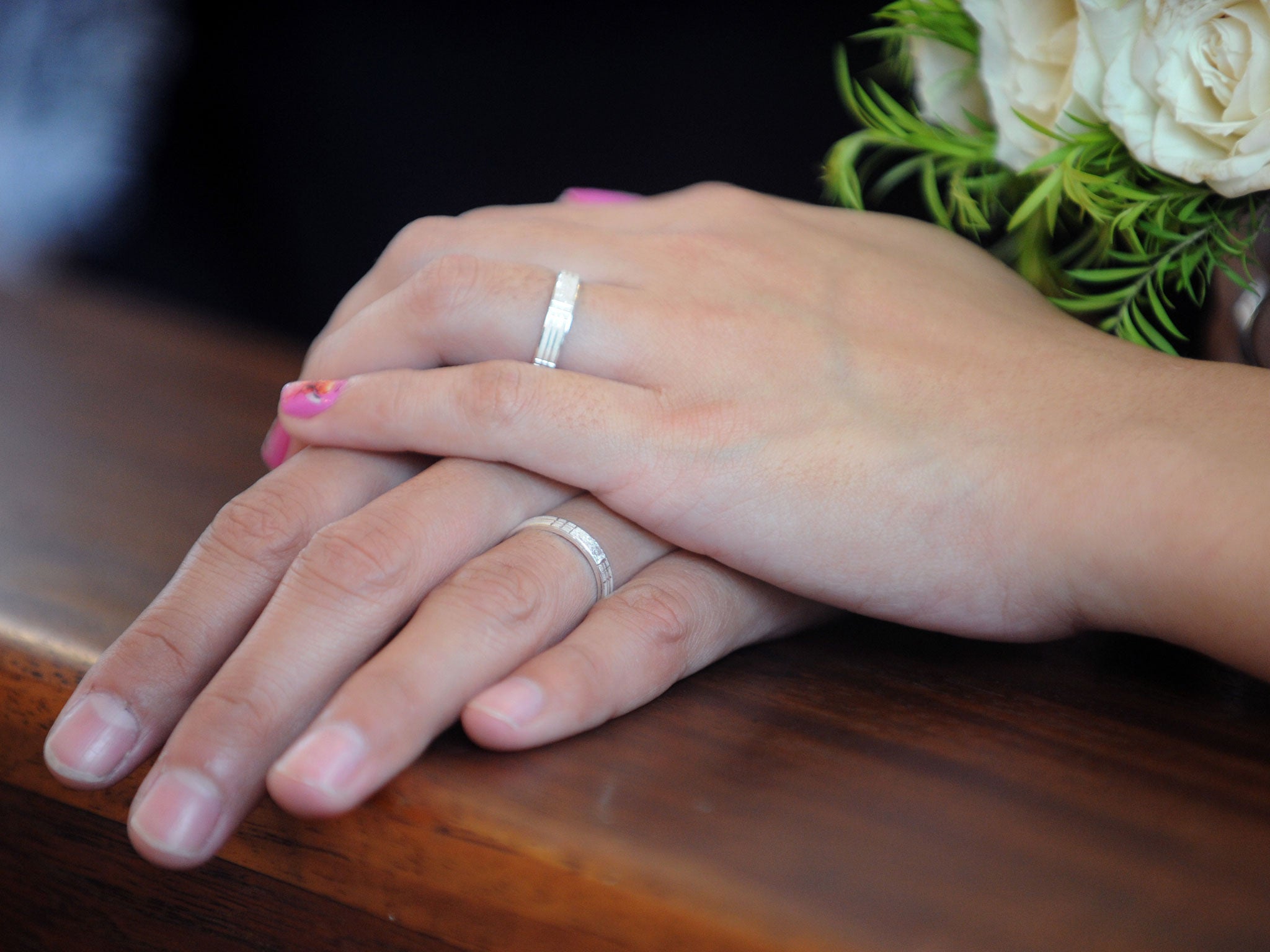Gentlemen prefer brains: similarly educated couples last
Researchers have discovered that marriages today have the best prospects of survival when both partners have the same level of education

If he knows what’s good for him, the modern gentleman will prefer brains, not blondes – according to a new study of marriage.
In what may be interpreted as both a victory for feminism and a sign that men now stand even less chance of winning an argument with their wives, researchers have discovered that marriages today have the best prospects of survival when both partners have the same level of education.
The generation of husbands who married in the early Nineties, the researchers found, was also the first to be happy with wives who were as smart – or smarter – than them.
This, the study confirmed, was a reversal of the Fifties, when Marilyn Monroe starred in Gentlemen Prefer Blondes, and when a marriage was most likely to last when a husband was better educated than his wife (and could presumably flatter him by saying that he knew best).
After her team analysed the fortunes of thousands of American couples who had married from the Fifties to 2004, Professor Christine Schwartz, of the University of Wisconsin, said they had discovered “trends towards a more egalitarian model of marriage in which women’s status is less threatening to men’s gender identity”.
Her findings suggest a seismic shift from the Fifties, where the man was traditionally the breadwinner, and the wife was expected – as one home economics textbook of the era advised – to “have dinner ready for him on time [and] offer to take off his shoes. Speak in a low, soft, soothing and pleasant voice…”
Despite the feminism of the Sixties and Seventies, the preference for a less educated wife (or the fear of a cleverer one) appears to have endured until at least 1980. Between 1950 and 1979, the researchers found, marriages where a woman was better educated than her husband were 34 per cent more likely to end in divorce than unions where the husband could (perhaps quietly) claim to be cleverer than his wife.
This has now reversed: the researchers found husbands and wives with the same levels of educational achievement were more likely to stay together than couples where the husband was better educated than his wife.
They also found substantial – but not conclusive – suggestions in the data that marriages where the wife is better educated than the husband may now actually be more stable than unions where the man could convince himself that he was the cleverest.
The researchers speculated that the changes may be a society’s adaptation to women’s progress at work and in education, where girls now outperform boys in many countries – including the UK, where last year they opened up a record lead over their possible future husbands in terms of GCSE results. The study said: “Our findings may be an example of how changes in the labour market and education have induced progress towards gender equality in the home.
“Couples marrying in the early Nineties were among the first for whom wives’ educational advantage was no longer associated with a higher risk of divorce. Couples with the same education levels are now less likely to divorce.”
The study concludes: “Our results speak against the fears that women’s growing educational advantage has had more negative effects on marital stability.”
Join our commenting forum
Join thought-provoking conversations, follow other Independent readers and see their replies
Comments
Bookmark popover
Removed from bookmarks